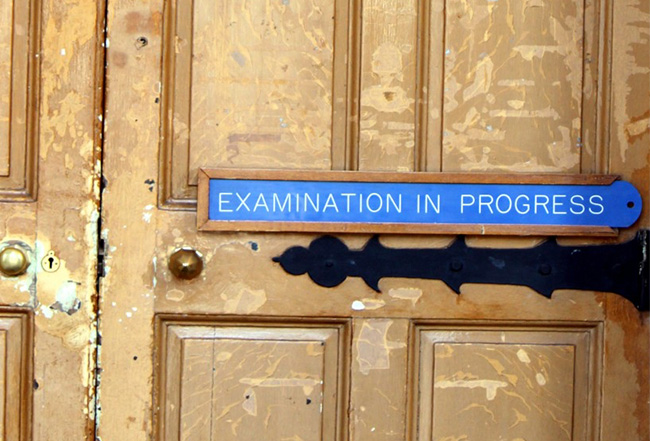Trinity’s Academic Registry has sought to play down confusion over the number of exams that have taken place over the last two years, confirming that the number has decreased despite previous College figures that showed an increase between 2017/18 and 2018/19.
In December, based on figures presented to the College’s Undergraduate Studies Committee, The University Times reported that the number of exam sittings in Trinity increased by nearly 10 per cent over the last two years, despite the College’s goal of reducing “the emphasis on summative examinations” as part of the Trinity Education Project (TEP).
But Leona Coady, the director of Academic Registry, has clarified that the apparent increase happened because exams held outside assessment weeks were factored into the overall total.
Previously, the assessments – known as “Council approved” exams – did not take place in exam weeks in the first and second semester, and were not included in Academic Registry’s database.
Because Academic Registry is now responsible for organising additional exams, the volume of exam sittings in its database went up – but the number of exam sittings actually went down by 7.4 per cent, Coady confirmed in an email to The University Times.
“By way of explanation”, Coady said, “the introduction of the new academic year structure in 2018/19 resulted in the realignment of some previous Council approved examinations (ie, examinations permitted to be scheduled outside the formal examination periods) into the formal end of Semester assessment periods and secondly, as part of TEP, all 15 and many 10-credit modules have been split into five-credit modules, replacing in many cases a single end-of-year exam with exams in both semesters”.
But she added that “in looking at the full range of examinations (including end of Semester examinations, Council approved examinations, and Term Tests) scheduled by the Academic Registry in 2018/19, a total of 85,023 examination sittings were scheduled representing an overall decrease of 7.4% on 2017/18 (91,207) – a difference of 6,184 individual examinations”.
Coady added that the decrease in the overall number of scheduled examinations during the 2018/19 academic year is partly a result of a 57-per cent decrease in the number of “term tests” conducted by AR.
Before Christmas, when The University Times reported on the increases reported at Undergraduate Studies Committee, Vice-Provost Jurgen Barkhoff referenced a number of changes Trinity has implemented in recent years as reasons for what was then thought of as an increase.
Barkhoff said the increase “reflects in part the increased flexibility and optionality being provided to students, and the change from an annual exam to exams at the end of each semester”.
He added that the increase is “in part an effect of semesterisation. I know we have the option of examining a whole year programme at the end in one sitting, but actually in many schools and many programmes, we believe that that was in the interests of the students and what the students wanted”.
“Shifting the emphasis away from summative examinations is part of a culture change”, Barkhoff said, “which will need some time to embed”.







